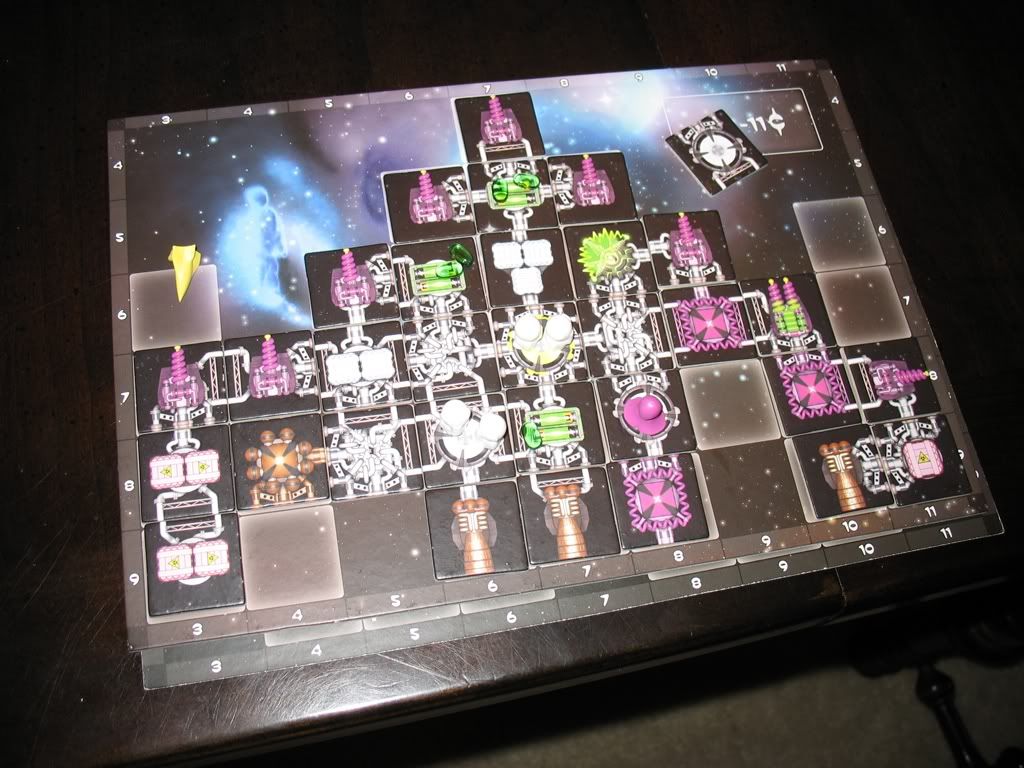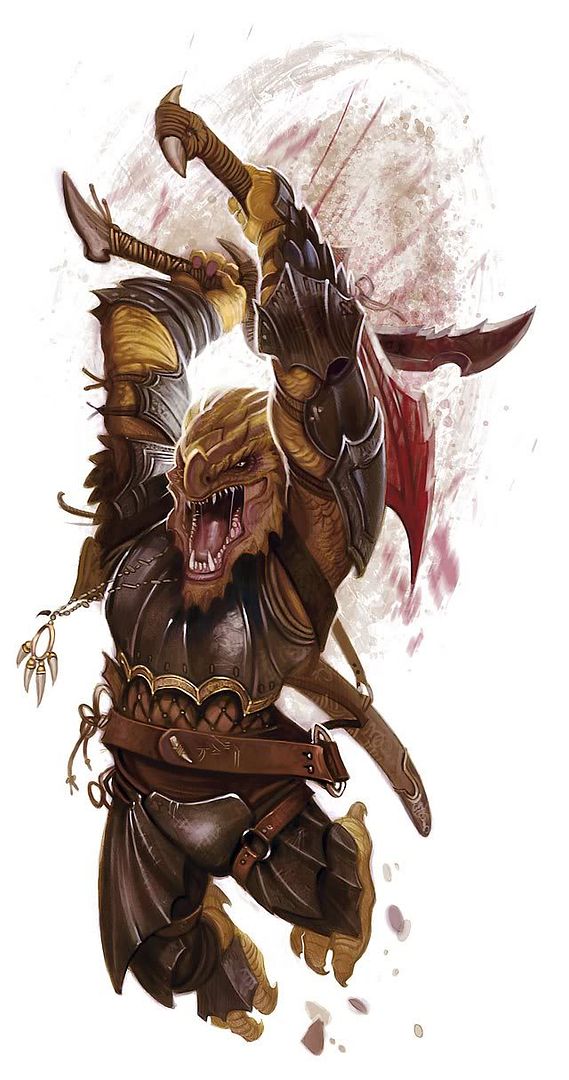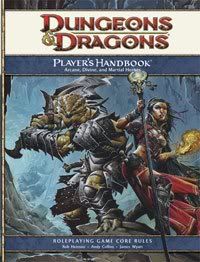 Since I seem to be on a puzzle game kick, lets keep this rolling right along to another foray into puzzley board games.
Since I seem to be on a puzzle game kick, lets keep this rolling right along to another foray into puzzley board games.Kids seems to be fascinated with space travel, idolizing Han Solo, Chewbacca and Captain Kirk's adventures into the big black void that exists being worlds. As we grow up we learn that space is actually pretty dangerous and not all that interesting anyways. We haven't found aliens, nor to we have numerous colonies on the outskirts of space full of futuristic pioneers like the ones in Firefly. Speaking of Firefly, wouldn't it just be cool to grab a junky ship and head out to the beyond to find your fortune? Doesn't that rekindle all those old fantasies and thoughts of adventure? Huh? Doesn't it?
Galaxy Trucker is your game then. The idea is that your a privateer on the outskirts of human civiliation, one of many that have come out seeking your fortune. Everybody starts with a general ship layout mat, and a starting crew cabin. From there, it's a race to grab the parts you need for your ship from a communal junkyard and assemble your "new" ship before time runs out. You've got limited amount of space to fit things like shields, guns, cargo storage, alien life support, more crew quarters, and engines. After your done building, your ship is subjected to a series of randomly selected trials, including pirates, slavers, combat zones, and meteor showers. You also can collect goods and money as you race the other players to the finish line.
It's a real romp through space. Obviously my favorite part of the games is the shipbuilding, which is very similar to another rather amusing game. There are many different ways to build your ship, from a fast cargo hauler to a slowmoving gunship. Its all based on personal taste and even your mood at the moment, and it's a real treat.
The part that most puzzle gamers really hate about Galaxy Trucker is the actual trucking itself. It's VERY random, and even a well-built ship can meet a gruesome fate. We've had some games where the only piece of the ship to make it home was a single crew compartment. It's hard seeing your creation get torn up, but I was one of those kids that build a lego ship for hours then sent it crashing into the floor just to see it happen. Building is a lot of fun, but seeing your ship getting humorously picked to pieces can also be entertaining. This is especially true if your drinking, as this game is light enough to be able to play while consuming moderate amounts of booze.
Galaxy Trucker is not a very deep game, and it's replay value is a little lower than others even with some expansions. Keep in mind that our group has played this game a LOT, and even after all this I still am entertained every time it hits the table. The game also requires that you be good-humored about the inevitably bad fate that's in store for most ships. If you're going to whine about getting screwed by bad luck, this game isn't for you. That said, I give it an 8 of 10 VP. This game is fun, has an awesome theme and lots of cool bits and pieces.
This game is kind of hard to find right now, and while a US or Canadian release is promised, it's still not happened yet. As soon as it's available I recommend grabbing it up quickly. Yes, you can even call yourself Mal or Han if you want.
Here's a video showing a typical round of play. I'm actually in this one for once :D





